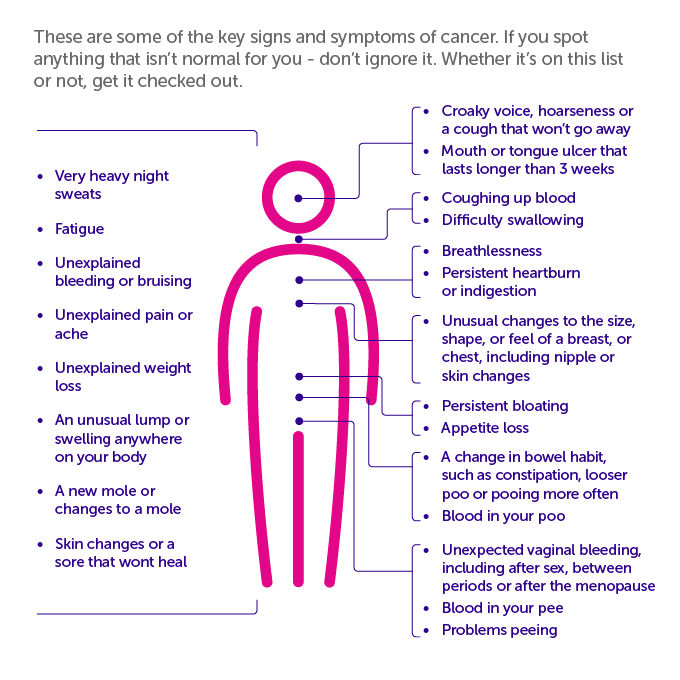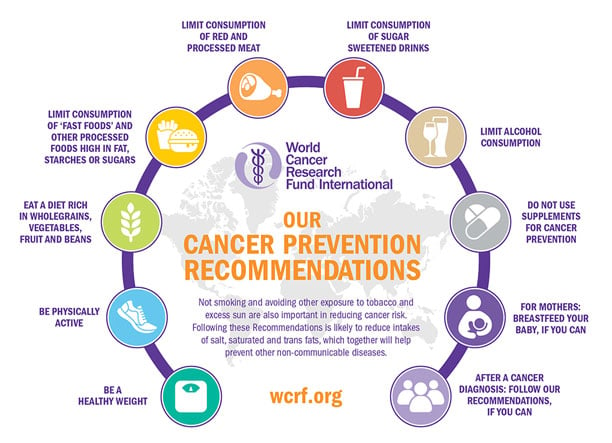April 17, 2024, marks World Cancer Day. When it comes to cancer, many people feel uneasy and try to avoid the topic. However, cancer is a disease that is not far from us.
The World Health Organization (WHO) suggests that one-third of cancers can be prevented, one-third can be cured if detected early, and one-third can have their life prolonged and suffering reduced with existing medical treatments. Adopting a healthy lifestyle, early screening, and public education play significant roles in reducing the incidence and mortality rates of cancer.
Scientific Cancer Prevention
Cancer doesn't develop overnight. It takes 10 to 20 years, or even longer, for normal cells to transform into cancer cells. The key is to detect it early and prevent it from progressing. Pay special attention if your body shows the following signs:

(*Please note*: Experiencing these symptoms doesn't necessarily mean you have cancer, but it's crucial to visit a certified hospital for early detection, prevention, and treatment.)
Cancer itself is not contagious, but some microorganisms that cause cancer are infectious. The International Agency for Research on Cancer (IARC) has identified 11 types/categories of infectious agents that can cause cancer in humans, including one bacterium, seven viruses, and three parasites. Each infectious agent can cause one or more types of cancer.
01 Bacteria
* Helicobacter pylori (HP) - Identified by WHO as the leading cause of stomach cancer.
02 Viruses
* Human papillomavirus (HPV) - The root cause of cervical cancer and its precancerous lesions.
* Hepatitis B virus (HBV), Hepatitis C virus (HCV) - Main infectious factors leading to liver cancer.
* Epstein-Barr virus (EBV) - Prevention of EBV infection is an effective way to reduce the risk of nasopharyngeal cancer.
* Kaposi's sarcoma-associated herpesvirus (KSHV) - Pathogenic factors for various B-cell malignancies and Kaposi's sarcoma (KS).
* Human T-cell lymphotropic virus type 1 (HTLV-1) - Induces adult T-cell lymphoma (ATLL).
* Human immunodeficiency virus (HIV) - Weakens the immune system, making the body vulnerable to viral infections that can cause cancer.
03 Parasites
* Schistosoma spp., Clonorchis sinensis, and Opisthorchis viverrini.
Scientific Cancer Prevention

A healthy lifestyle is one of the key factors in cancer prevention. WHO states that personal lifestyle factors contribute to 60% of health outcomes, and cancer is a lifestyle-related disease. Unhealthy habits such as smoking, excessive drinking, obesity, stress, lack of exercise, and poor dietary habits are risk factors for cancer. Quitting smoking, limiting alcohol consumption, avoiding secondhand smoke, maintaining a balanced diet, balancing work and rest, engaging in regular exercise, and keeping a positive mindset can effectively reduce the risk of cancer.
Cancer screening is based on the assessment of cancer risk and involves physical examinations for common cancers to inform people about their cancer risk, detect early-stage cancer or precancerous lesions, and provide early interventions. Current technologies can detect most common cancers early, such as using low-dose spiral CT for lung cancer screening, ultrasound combined with mammography for breast cancer screening, and endoscopy for gastrointestinal cancer screening. Individualized screening based on personal history, disease history, age, and previous examination results is key to improving early cancer diagnosis rates.
Common Cancer Screening Recommendations
*Breast Cancer*
For the general population:
- Breast self-examination: Monthly from age 20 onwards.
- Clinical breast examination: Every 3 years for ages 20-29, annually for ages 30 and above.
- Mammography: From age 35, every other year. After 40, every 1-2 years. After 60, every 2-3 years.
- Ultrasound: Annual ultrasound from age 30 onwards.
For high-risk groups:
Encourage breast self-examination, annual clinical breast examination from age 20, and breast MRI from age 30.
*Cervical Cancer*
Women aged 25 and above should undergo annual cervical cytology (Pap smear) and HPV testing. If HPV test results are negative, retest for HPV every 3 years. If high-risk HPV infection is present, annual retesting is recommended. If cervical cytology shows CIN2 or CIN3, surgical intervention is needed. If CIN1, recheck after one year.
*Thyroid Cancer*
People with any of the following risk factors can undergo neck ultrasound. Further examination can include thyroid nodule biopsy:
- Family history of thyroid cancer.
- Childhood head and neck radiation exposure.
- Thyroid nodules larger than 1cm, growing rapidly, or accompanied by cervical lymph node enlargement.
- Prolonged stress, emotional instability.
*Colorectal Cancer*
Recommendations for individuals over 40 who are obese, have a family history of colorectal cancer, intestinal polyps, or frequently stay up late or sit for long periods:
- Annual fecal occult blood test from age 40 onwards.
- Colonoscopy every 5-10 years from age 40.
- After 50, sigmoidoscopy, barium enema, or CT colonography every five years, and DNA stool test every 3 years.
*Lung Cancer*
For individuals over 40 with at least one of the following risk factors, low-dose spiral CT screening is recommended:
- Smoking for ≥20 pack-years, including those who quit smoking less than 15 years ago.
- Passive smoking.
- Occupational exposure history (asbestos, beryllium, uranium, radon).
- History of malignant tumors or family history of lung cancer.
- History of chronic obstructive pulmonary disease or idiopathic pulmonary fibrosis.
If lung nodules are detected, further examinations are based on the characteristics of the nodules.
*Gastric Cancer*
Individuals aged 45 and above with any of the following conditions should undergo gastric endoscopy:
- Long-term residence in high-risk areas for gastric cancer.
- HP infection.
- History of chronic atrophic gastritis, gastric ulcers, gastric polyps, residual stomach after surgery, hypertrophic gastritis, or pernicious anemia.
- First-degree relatives with a history of gastric cancer.
- Other high-risk factors for gastric cancer (high salt intake, pickled diet, smoking, heavy drinking).
*Liver Cancer*
For individuals with HBV or HCV infection, long-term alcohol consumption, non-alcoholic fatty liver disease, consumption of food contaminated with aflatoxins, various causes of liver cirrhosis, or a family history of liver cancer, especially males over 40, biannual check-ups are recommended.